5 Drinks Secretly Increasing Inflammation in Your Body
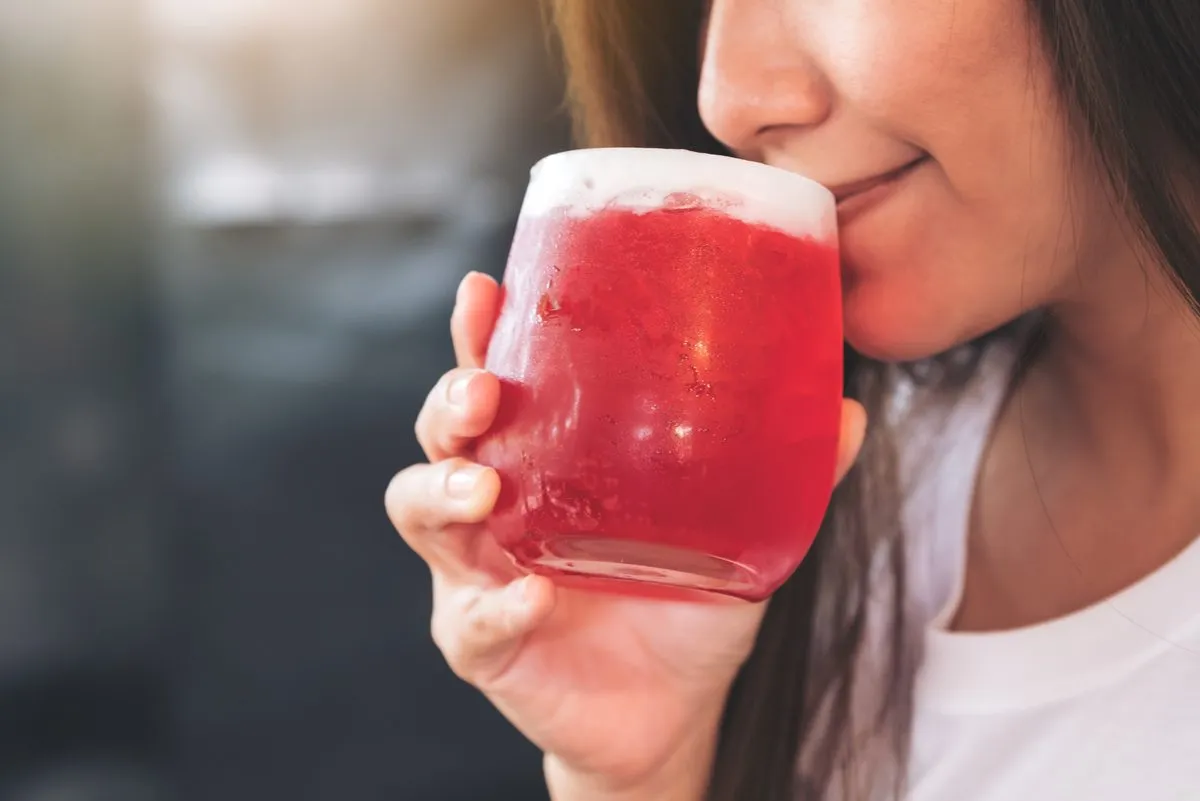
A lot has been said in recent years about inflammation. Anyone looking to avoid pain and long-term health issues has been warned about the implications of this health condition, as increased inflammation levels can lead to cancer, heart disease, and other health problems if ignored. While inflammation can cause myriad issues, educating yourself about ways to prevent it can make a big difference. And one place to start is by knowing which drinks can make inflammation worse.
According to the Cleveland Clinic, certain foods like preserved meats, fried food, sugary treats, and other refined carbs can trigger worse markers of chronic inflammation. Although foods generally get a bad rap when it comes to sparking inflammation, it’s true that drinks can also lead to this condition. For instance, because diets higher in added sugar have been linked to greater levels of inflammation, drinking sugary beverages like sodas, fruit drinks, and sugar-sweetened coffees on a consistent basis may have inflammatory effects on your body.
If you need to reduce inflammation in your body, make sure to limit the following beverages or consume them only on occasion. Then, check out The Worst Breakfast Habits for Inflammation.
Sugary lattes
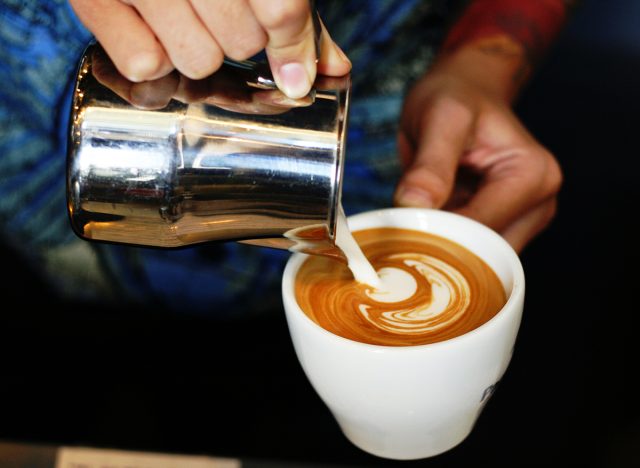
“While research suggests that coffee itself might have beneficial effects on inflammation due to its plant compounds and polyphenol content, what you put in your coffee might counterbalance the good,” says Amy Goodson, MS, RD, CSSD, LD, author of The Sports Nutrition Playbook and a member of our Medical Expert Board. “Many coffee and mock-coffee drinks are loaded with sugar from syrups, sauces, whips, and drizzles. If you are slurping down a large one of these every day, you might be taking in more sugar than you think! Does a fun flavored latte once a week hurt you? No, but consistent intake of added sugar in beverages can.”
A 2018 review published in Nutrients concluded that there was a link between diets high in refined sugar and inflammation—especially if the sugar came from sweetened beverages. More specifically, those who consumed higher amounts of added sugar were found to have greater levels of inflammatory markers in their blood.
So, instead of reaching for a super-sugary coffee drink, Goodson suggests trying to be “satisfied with less sweetness and maybe just getting one pump of flavor, skipping the whip, and drizzle, and just using milk foam.”
You’ll save on added sugar, calories, and likely dollars, too!” she adds.
If you really want to fight inflammation with caffeine, check out the Best Coffee Habits for Inflammation and make your morning latte work in your favor.
Flavored oat milk
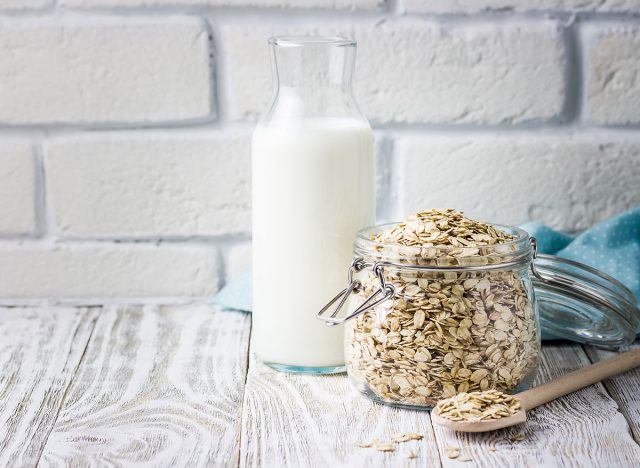
You may assume that selecting a non-dairy milk is automatically a healthier choice for you, but this isn’t always the case. In fact, some people may not realize that these drinks can make inflammation in your body worse.
“When it comes to non-dairy milk, not all brands and varieties are created equal,” says Trista Best, RD at Balance One Supplements. “When oat milk is made with flavorings and added sugar, it becomes inflammatory. Even flavorless options can contain around 7 grams of sugar per serving. For those that have a gluten allergy or intolerance, this can make their inflammatory reaction worse. While oats are naturally gluten-free, some are processed in facilities that manufacture gluten-containing ingredients, making cross-contamination possible.”
If you want to pick up the best oak milk for your buck, make sure you keep an eye out for The Best & Worst Oat Milk Brands to Buy.
Sweet tea
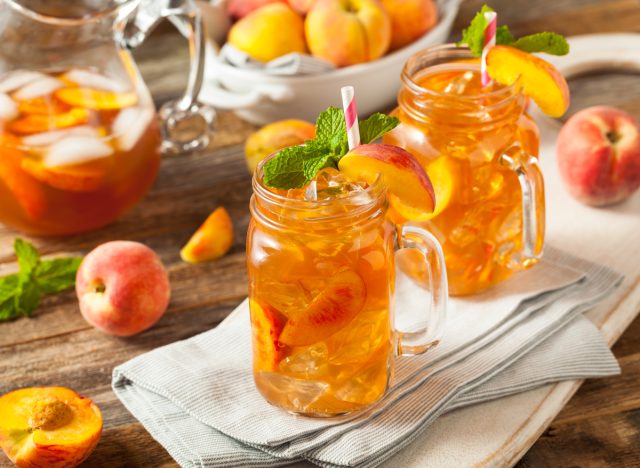
If you’re from the South, you’re probably familiar with a deliciously refreshing glass of sweet tea. Unfortunately, the name says it all, which means these drinks are packed full of sugar.
“Sugar-sweetened beverages like sweet tea should be limited as much as possible,” says Goodson. “Over time, excessive intake of added sugars can contribute to chronic inflammation, and many sugar-sweetened beverages have next to no nutritional value, meaning they really just provide you with sugar and calories.”
According to a study published in Nutrition Research, people who lowered their consumption of sugary drinks saw lower levels of inflammatory markers in their blood.
So if you’re monitoring your inflammation, try swapping these drinks out for water, lightly flavored waters, or even water flavored with fresh fruit as a good low-to-no sugar hydration source.”
Instead, grab one of these 7 Best Teas to Support Your Immune System Right Now.
Store-bought smoothies
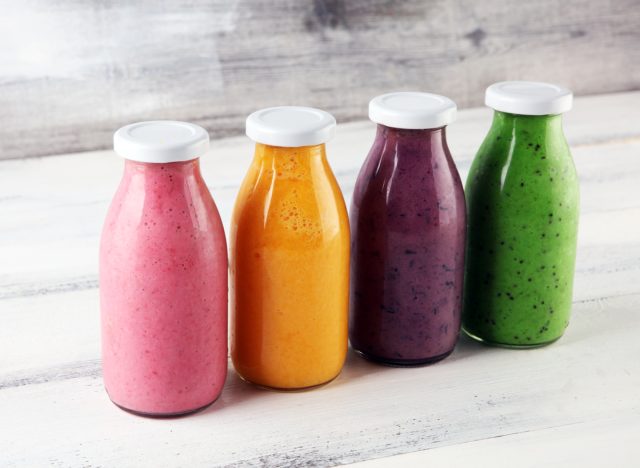
“While smoothies can be a great option for meal replacement or post-workout recovery, many of the ones you buy at smoothie shops actually have added sugar in a word you may not recognize, called turbinado,” Goodson says. “The addition of turbinado, plus fruit juices, can increase the sugar content of a smoothie real fast. This added sugar, when consumed over time, can potentially contribute to inflammation, especially if you drink other sugar-sweetened beverages, as well.”
But not all smoothies are the same when it comes to nutritional value. Some are full of healthy ingredients and don’t include added sugar. These are the ones you’ll want to look for. If you have the time and resources, you can also try making a smoothie at home.
“You can make a smoothie at home with fresh fruit, milk, and yogurt, but if you are going to buy one at the store, check out the ingredient list and nutrition facts label,” says Goodson. “Cutting the added sugar might mean getting a skinny, lean, or light smoothie, depending on how the store labels it. Then, of course, make sure your smoothie has a good carbohydrate to protein ratio so it doesn’t spike your blood sugar.”
Soda
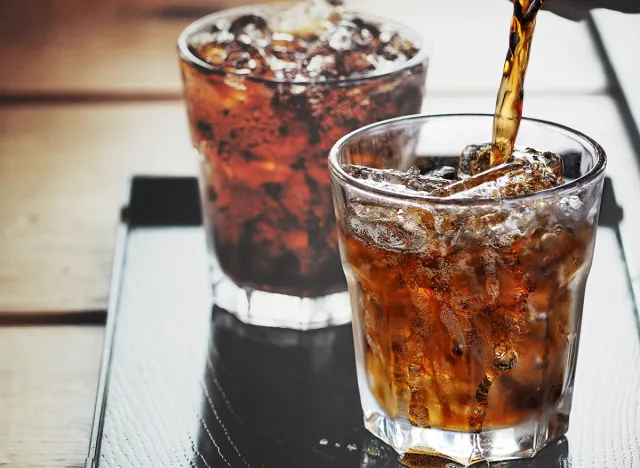
If the sugar in your smoothie doesn’t spark inflammation, the sugar in a soda just might.
“Sugary soda increases inflammation,” says Lisa Young, Ph.D., RDN, author of Finally Full, Finally Slim and a member of our Medical Expert Board. “Chronic inflammation can develop over time from regularly drinking beverages with lots of added sugar, and soda is a leading contributor to added sugar in the diet.”
“Consuming a diet high in added sugar can increase inflammation that can lead to disease, so I suggest drinking water or sparkling water instead,” Young adds. “It’s OK to add mint and lemon, or even a splash of juice for flavor.”
Don’t feel like you have to give up soda cold turkey. If sparkling water sounds less than appealing, you can find other sweet drinks that contain less sugar, or you can try limiting your soda consumption to just once in a while. That way, you’re still enjoying a drink you love, but you won’t be taking in as much added sugar on a consistent basis.
Correction note: A previous version of this story also identified dairy as a trigger for inflammation in the body, which was an error. While more conclusive research is still needed, at present, reviews of clinical trials have yet to observe any pro-inflammatory effects resulting from dairy consumption in human study participants.
This story was originally published on March 4, 2022, and was updated in January 2023. In addition to fact-checking and related corrections, the article has been revised to include additional copy and proofreading revisions, further research, and updated contextual links.








